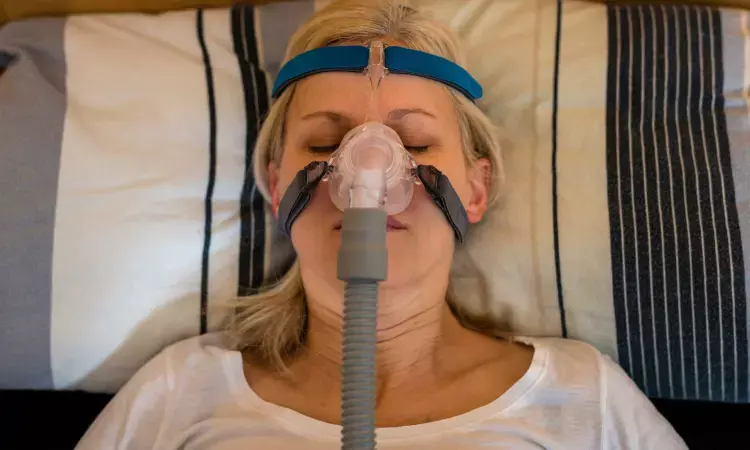- Home
- Medical news & Guidelines
- Anesthesiology
- Cardiology and CTVS
- Critical Care
- Dentistry
- Dermatology
- Diabetes and Endocrinology
- ENT
- Gastroenterology
- Medicine
- Nephrology
- Neurology
- Obstretics-Gynaecology
- Oncology
- Ophthalmology
- Orthopaedics
- Pediatrics-Neonatology
- Psychiatry
- Pulmonology
- Radiology
- Surgery
- Urology
- Laboratory Medicine
- Diet
- Nursing
- Paramedical
- Physiotherapy
- Health news
- Fact Check
- Bone Health Fact Check
- Brain Health Fact Check
- Cancer Related Fact Check
- Child Care Fact Check
- Dental and oral health fact check
- Diabetes and metabolic health fact check
- Diet and Nutrition Fact Check
- Eye and ENT Care Fact Check
- Fitness fact check
- Gut health fact check
- Heart health fact check
- Kidney health fact check
- Medical education fact check
- Men's health fact check
- Respiratory fact check
- Skin and hair care fact check
- Vaccine and Immunization fact check
- Women's health fact check
- AYUSH
- State News
- Andaman and Nicobar Islands
- Andhra Pradesh
- Arunachal Pradesh
- Assam
- Bihar
- Chandigarh
- Chattisgarh
- Dadra and Nagar Haveli
- Daman and Diu
- Delhi
- Goa
- Gujarat
- Haryana
- Himachal Pradesh
- Jammu & Kashmir
- Jharkhand
- Karnataka
- Kerala
- Ladakh
- Lakshadweep
- Madhya Pradesh
- Maharashtra
- Manipur
- Meghalaya
- Mizoram
- Nagaland
- Odisha
- Puducherry
- Punjab
- Rajasthan
- Sikkim
- Tamil Nadu
- Telangana
- Tripura
- Uttar Pradesh
- Uttrakhand
- West Bengal
- Medical Education
- Industry
CPAP may improve BMD among male patients with sleep apnea

Obstructive sleep apnea (OSA) and low bone mineral density (BMD) are two prevalent conditions with a significant negative impact on patients' well-being and quality of life.
Obstructive sleep apnea (OSA) treatment restores bone health. Support continuous positive airway pressure (CPAP) treatment improves bone mineral density (BMD) in male patients with severe OSA, according to a new study published in Journal of Clinical Sleep Medicine study.
Obstructive sleep apnea (OSA) and low BMD negatively impact patients' well-being and quality of life. Based on the data and results obtained from recent research, studies have consistently shown low BMD at different bone sites in male patients with a history of Obstructive sleep apnea (OSA).
CPAP treatment's efficacy for Obstructive sleep apnea (OSA) is demonstrated widely. More data on the evidence needs to be collected to understand its impact on bone mineral density (BMD) and other bone-related outcomes.
In the present study, researchers investigated the effect of twelve months of CPAP treatment on lumbar and femur bone mineral density (BMD) and bone-related serum biomarkers in male patients with severe OSA.
The study had Sixty patients with a mean age of 55 years. These patients underwent BMD measurement with dual-energy x-ray absorptiometry at baseline and after 12 months of CPAP treatment. The team examined levels of Vitamin D, parathyroid hormone (PTH), and calcium serum levels at the same time points.
The key results of the study are:
- There was a significant increase in BMD in the L1 and L2 vertebrae after CPAP treatment, along with increased vitamin D and calcium levels.
- There was a decrease in PTH levels.
- There was a significant correlation between increased BMD in L1 and decreased PTH serum levels.
They said that beneficial OSA treatment restores bone health and supports CPAP treatment as a feasible strategy to improve BMD in male patients with severe Obstructive sleep apnea (OSA).
They note that diagnosing and targeting OSA may be warranted in managing male patients with undetermined osteopenia and osteoporosis.
Further reading:
https://www.unboundmedicine.com/medline/citation/37677073/full_citation
BDS, MDS in Periodontics and Implantology
Dr. Aditi Yadav is a BDS, MDS in Periodontics and Implantology. She has a clinical experience of 5 years as a laser dental surgeon. She also has a Diploma in clinical research and pharmacovigilance and is a Certified data scientist. She is currently working as a content developer in e-health services. Dr. Yadav has a keen interest in Medical Journalism and is actively involved in Medical Research writing.
Dr Kamal Kant Kohli-MBBS, DTCD- a chest specialist with more than 30 years of practice and a flair for writing clinical articles, Dr Kamal Kant Kohli joined Medical Dialogues as a Chief Editor of Medical News. Besides writing articles, as an editor, he proofreads and verifies all the medical content published on Medical Dialogues including those coming from journals, studies,medical conferences,guidelines etc. Email: drkohli@medicaldialogues.in. Contact no. 011-43720751


